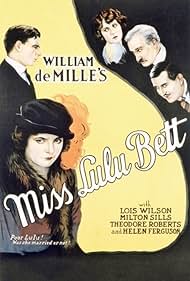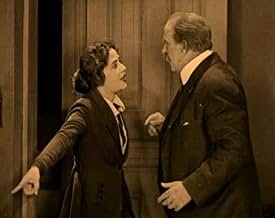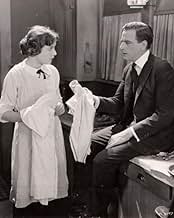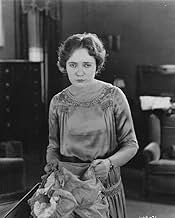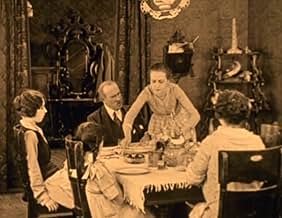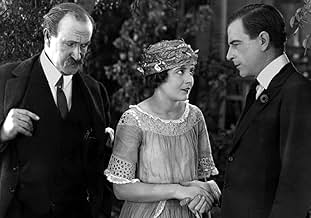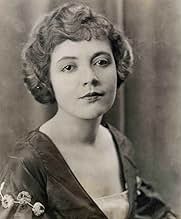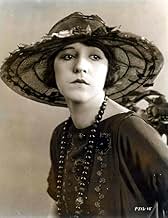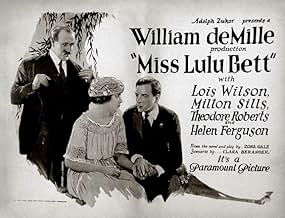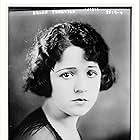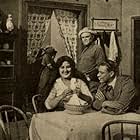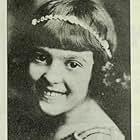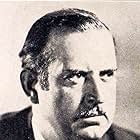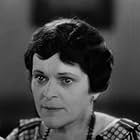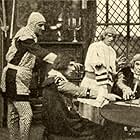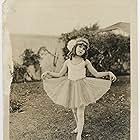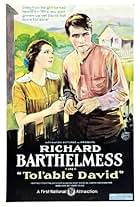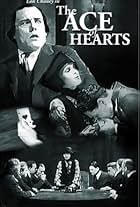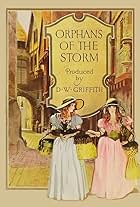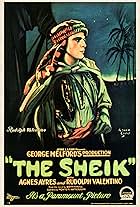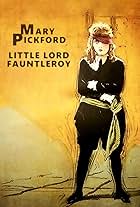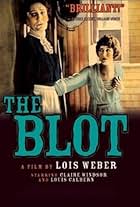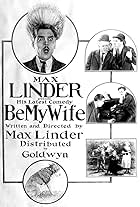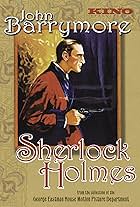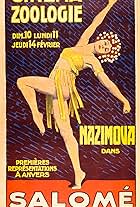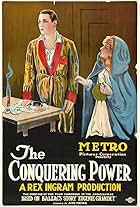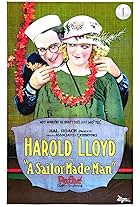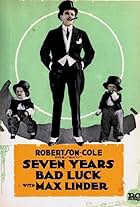A once-timid young woman gains newfound confidence after a failed marriage, much to the chagrin of her miserable family.A once-timid young woman gains newfound confidence after a failed marriage, much to the chagrin of her miserable family.A once-timid young woman gains newfound confidence after a failed marriage, much to the chagrin of her miserable family.
- Awards
- 2 wins total
Mae Giraci
- Monona Deacon
- (as May Giraci)
Peaches Jackson
- Child
- (uncredited)
Carrie Clark Ward
- Gossip
- (uncredited)
- Director
- Writers
- All cast & crew
- Production, box office & more at IMDbPro
Storyline
Did you know
- TriviaZona Gale re-wrote her novel into a play, which was first produced by Brock Pemberton at the Belmont Theater, NY. The premiere took place on 27 December, 1921. The following cast was featured: Carroll McComas as Lulu Bett, William Holden as Dwight Deacon, Catherine Doucet as Ina Deacon (billed as Catherine Calhoun Doucet), Jack Lionel Bohn as Bobby Larkin (billed as Jack Bohn), Willard Robertson as Neil Cornish, Louise Closser Hale as Miss Bett (misspelled as Louis Closser Hale), and Brigham Royce as Ninian Deacon, plus Lois Shore as Manona Deacon and Beth Varden as Diana Deacon. It ran for 198 performances and won the 1921 Pulitzer Prize for Drama.
- Quotes
Introductory Title: The greatest tragedy in the world, because it is the most frequent, is that of a human soul caught in the toils of the commonplace. This happens in many homes where family ties, which could be bonds of love, have become iron fetters of dependence.
Featured review
Lulu Bett and her mother live with Lulu's sister Ina and her husband Dwight Deacon, along with the Deacon's two daughters. Lulu cooks, cleans, and is treated like a doormat by the family. When Deacon's brother Ninian arrives in town, he takes an interest in Lulu. Dwight, Ina, Lulu and Ninian go out for a night on the town, during which Lulu and Ninian jokingly exchange wedding vows over dinner. But Dwight, being a Justice of the Peace, tells them that their civil ceremony is legal, and that they are indeed married. The couple decide to try out marriage, but Lulu soon discovers Ninian was married before, and his wife ran off. She returns home, and again is treated as a second-class citizen. Neil Cornish, the town's schoolteacher, begins to fall for her. Lulu talks her young niece out of eloping. In so doing, Lulu slowly begins to assert herself.
This is a simple but engaging film, with a charming performance by Wilson. In the early scenes, she appears plain, unattractive, and timid. You keep waiting for her to explode at all the ingrates around here. As the film progresses, she blossoms, and by the climax, it is a hoot watching her manhandle Theodore Roberts:
Speaking of Roberts, he chomps his ever-present cigar, which makes me think the only film in which he doesn't do this is "The Ten Commandments" ... unless I missed that scene on Mt. Sinai where Moses has a smoke. Sills isn't in the film very much, and the final scene with him and Wilson is extremely corny.
The film was based upon a novel of the same name, by Zona Gale. Gale adapted her novel into a play, earning her the 1921 Pulitzer Prize for drama, the first woman to receive such an award. The film follows the novel pretty faithfully, although in the book, Neil Cornish is a piano salesman and not a teacher. Also, the novel's ending is more true to life, and not the silly ending displayed in the film.
This is a simple but engaging film, with a charming performance by Wilson. In the early scenes, she appears plain, unattractive, and timid. You keep waiting for her to explode at all the ingrates around here. As the film progresses, she blossoms, and by the climax, it is a hoot watching her manhandle Theodore Roberts:
Speaking of Roberts, he chomps his ever-present cigar, which makes me think the only film in which he doesn't do this is "The Ten Commandments" ... unless I missed that scene on Mt. Sinai where Moses has a smoke. Sills isn't in the film very much, and the final scene with him and Wilson is extremely corny.
The film was based upon a novel of the same name, by Zona Gale. Gale adapted her novel into a play, earning her the 1921 Pulitzer Prize for drama, the first woman to receive such an award. The film follows the novel pretty faithfully, although in the book, Neil Cornish is a piano salesman and not a teacher. Also, the novel's ending is more true to life, and not the silly ending displayed in the film.
Details
- Release date
- Country of origin
- Language
- Also known as
- Lulu's friare
- Production company
- See more company credits at IMDbPro
- Runtime1 hour 11 minutes
- Color
- Sound mix
- Aspect ratio
- 1.33 : 1
Contribute to this page
Suggest an edit or add missing content

